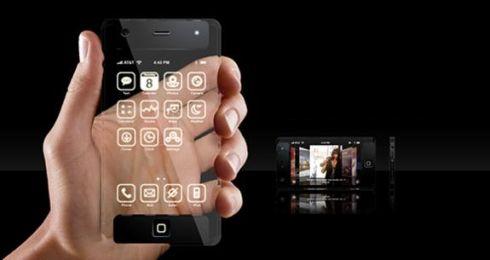For fourth-grader Gabe Rivera, running vocabulary drills and solving mathematical problems on his classroom iPod Touch is a fun way to learn, in part because it's "something that is more newer than paper."
The student at Somerset Elementary School in Mendota Heights is one of many enthusiastic about the Apple touch-screen media players and handheld computers. The devices are becoming fixtures in U.S. schools as educators become aware of the various applications that can be installed on the gadgets to help students learn.
At Somerset and other schools in the West St. Paul-Mendota Heights-Eagan district, for instance, the iPod Touch has taken classrooms by storm.
For kids there, math and spelling activities that used to seem, well, boooring have a sudden allure on an iPod. This was clear on a recent morning in a room filled with students raptly tapping, scrolling and swiping.
Rivera's teacher, Jean Stai, had to impose little discipline as her kids lost themselves in Word Salad, a vocabulary program, TanZen, a geometry app, and States and Capitols, among others.
Her biggest challenge appeared to be prying the kids from one app so they'd switch to another. The students were handed sheets with short, personalized lists of apps each had to try.
"They're so engaged," Stai said. "Suddenly, it's not so horrifying to study your facts tables. It is like a game. What would be tedious with paper and pencil is no longer so with bright colors and things moving
around." Somerset recently obtained an iPod Touch minilab of sorts — consisting of a storage-and-charging cart on wheels with dozens of the players, along with a laptop for downloading educational apps and transferring them to the players. Teachers take turns checking out the cart one or more times a week and handing out the charged-up iPods to students for some high-tech learning that, to the kids, feels a lot like playtime.
Stai is not yet convinced iPods will have substantive, lasting educational value. But she doesn't discount the students' excitement in the two months or so she has been using iPods in class. "Enthusiasm is important," she said.
Laptops are in little danger of being displaced by iPods as the favored digital devices for hands-on learning in K-12 classrooms. Educational experts, though, are increasingly embracing the Apple handheld gadgets as teaching supplements and, in some cases, outright replacements for computers.
Ginger Malin, who trains the next generation of schoolteachers as a DePaul University secondary-instruction professor, recently began equipping her students with iPod Touch players and inexpensive Flip digital-video cameras. These are being used to develop interactive lessons that the teachers-in-training may someday integrate into their own classrooms.
Malin, a gadget geek who likes going to tech conventions such as the Consumer Electronics Show, has discovered that her students in some cases are terrified of the classroom technology.
"They're petrified," she said. "I help them be less afraid of something new. I fail in front of them so they're not afraid to fail, too. The 'aha!' moments (eventually) come. I get e-mails from students who are so proud of what they've produced."
Developers of iPod Touch apps and add-on hardware are getting wise to a burgeoning educational market, too, and seizing the chance to innovate.
Alex Silverman, a former high school teacher now working as an app developer, has pioneered an eClicker system. It allows teachers and their students to communicate via iPod Touch over a classroom's Wi-Fi network. Such electronic interaction spurs classroom participation, he said, but older technologies to enable this are too expensive.
With eClicker, sold by Big Nerd Ranch Software, a classroom's only expense other than iPods is a $25 eClicker app for the teacher (the eClicker app on students' iPods is free). This allows teachers to ask questions and get answers more easily than if prodding shy kids into speaking up, Silverman said.
The iPod Touch has been a godsend for Jon Smith, a fifth- and sixth-grade special-education teacher at Gibbs Elementary School in Canton, Ohio.
His students have a variety of learning disabilities that often cannot be overcome with regular teaching methods. But something as simple as a flash-card slide show on touch-screen iPods, with finger swipes for moving from one digital photo to the next, tends to electrify the kids. So Smith has nudged his superiors into spending more money on the Apple devices.
His kids now rack up impressive scores with vocabulary-drill apps, devour social-studies moving-picture books and even watch videos of themselves delivering book reports. This footage, after being taken with low-cost video cameras, is transferred to a computer and then synced to the kids' iPods.
Smith delights in seeing "a sparkle in the kids' eyes."
Charles Duarte, a second-grade teacher at Moreland Elementary School in West St. Paul, has introduced his students to e-mail — via a set of classroom Google Gmail accounts used on iPods under close supervision. Each account is associated with a classroom iPod Touch, which a student uses to send the teacher morning journal entries and the like.
One of the iPods even has a Twitter app. Students use it to update a Twitter account at the school, which is part of the West St. Paul-Mendota Heights-Eagan district.
Back at Somerset, second-graders in Mary Nelson's class emulate their fourth-grade classmates with giddy use of educational apps — though different ones, for simpler activities such as spelling short words.
That was recently enough to excite one boy, who exclaimed, "I just spelled my name!"

No comments:
Post a Comment